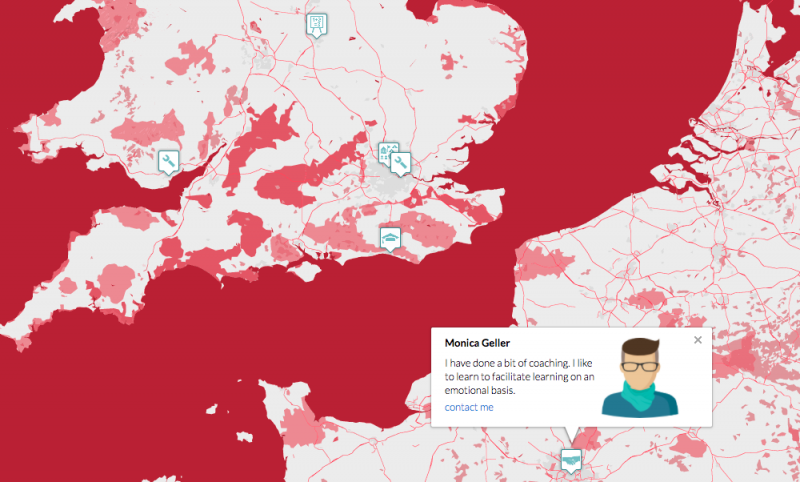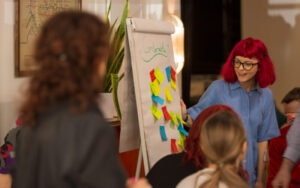For the last few years I’ve been lucky to find myself at the centre of a vibrant and inspirational coaching community.
CRRUK is the exclusive provider of Organisational and Relationship Systems (ORSC) training in the UK, Ireland and Scandinavia. We train professional coaches, independent consultants, HR, OD and L&D specialists, leaders, managers and teams, across the corporate, public and non-profit sectors.
As MD of CRRUK, inevitably most things ORSC-related cross my path. Specifically, I’m frequently asked to recommend a coach practitioner or facilitator. Or if I can help connect someone with an organisation. Or if I might forge links between individuals, regions and sectors.
Since 2015, I’ve helped train over nine hundred people in ORSC concepts and methodology. Almost a hundred of our course participants went on to complete all five modules of the ORSC curriculum. That’s a lot of systemic thinkers and ORSC practitioners, out there in the field, across the UK and in Europe.
I can’t hold all those names (however good I may be at my role of facilitator!) More importantly, I’m very aware of my own subjectivity — of all of our unconscious biases.
Without wanted or asking for the role, it can feel, at times, like I’m asked to act as a gatekeeper of our community. I don’t believe this is how it should be.
Empowering the community
CRRUK doesn’t need to be the centre of the ORSC community for it to keep evolving. I would much prefer to enable all of these potential collaborations and relationships naturally to find each other.
I want to promote transparency about who is in and around the ORSC community. I also want to facilitate direct connections, removing CRRUK from the role of ‘broker’.
To this end, CRRUK is attempting to pull together data on the active ORSC community both in the UK and beyond. We want to map — and in so doing connect — an international network of the ORSC curious, systems thinkers and ORSC practitioners.
Co-creating a new map
This was not my idea alone. The wonderful ORSCUK Community has often raised the discussion of creating a directory. As a member of the steering group, I have listened to and heard those voices. Earlier this year, a cohort of students who completed the ORSC curriculum together, were very vocal about the need to create such a resource. (Kwasi Owusu-Asomaning in particular, has been a passionate and proactive driver of this project!)
We all seem to agree that a directory map could become a valuable resource for all of us. An ORSC directory will help the community find each other, facilitate collaboration, and help potential clients connect with qualified practitioners.
But now we need you — the wider ORSC community, in the UK, Europe, and beyond — to engage. Without the community sharing profiles and contact details, this resource won’t take off or create value.
How to get involved
Take a look at the first iteration of the directory. This is version 1.0. For now, we’ve used dummy data to demonstrate the functionality.
If you’d like to add your details, please get in touch with us via info@crruk.com. Here’s what we’ll need:
- your full name
- a very short professional bio (no more than 25 words) outlining your experience, skills or areas of interest.
- the town or city (and if applicable country) in which you’re based
- either your professional email address (if you want directory users to be able to contact you) or your website URL
- a profile picture (this should be a head-shot, in .jpg format, size 300 x 300 px.)
- which category you want us to put you in:
- ORSC curious
- ORSC in training
- ORSC trained
- ORSC certified practitioner
Please do get involved and help us to build a comprehensive map. We can’t make this happen without you!
We also welcome your ideas and contributions on how we can improve and develop this resource, to make it as relevant and useful as possible. Please do get in touch to share your ideas and feedback. Thank you.
[mks_separator style=”dashed” height=”2″]
Got a question about ORSC training? Get in touch, we’d love to hear from you.






